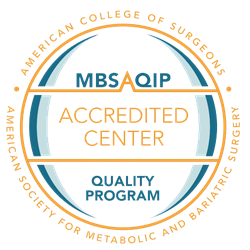
Learn more about weight loss surgery at Rocky Mountain Associated Physicians www.RMAP.com (801) 268-3800
It’s important to us here at Rocky Mountain Associated Physicians (RMAP) that, you as our patient, have all the necessary information you will need prior to surgery and for postoperative lifestyle adjustments. It takes so much determination and courage on your part to make and follow-through with your decision to have weight loss surgery. Remember that the surgery you will have provides only a powerful tool for weight loss, and will help you implement a healthy lifestyle, but the real key to your success relies on YOU.
Try thinking of a hammer. What is a hammer used for? One use could be to build a house. If you were to put a hammer down next to a foundation and wood, will it build a house for you? No. A worker must pick it up and use it to build a house. The hammer is only a tool. Is building a house easy? No. Like the hammer, weight loss surgery is only a tool. Can we reach our long-term goals easily? No. The surgery will not guarantee long-term success. When utilized correctly, it’s an effective means of losing weight and keeping it off. Most patients are surprised to discover that even after surgery they have to be aware of what they are eating, and engage in exercise to keep the weight off.
Our surgeons have 20+ years of research statistics on thousands of weight loss surgery patients. These statistics reveal several patients who have re-gained every pound lost in as little as five years because they didn’t implement a proper behavior modification lifestyle. Statistics also show many patients who have kept 100+ pounds off for over 10 years! This surgery is a very effective “tool” when proper nutrition, exercise and abstinence from unadvised foods and beverages are implemented.
Habits
Determination, practice, patients and persistence are vital to your behavior modification efforts.
- Plan your meals
- Try not to let others influence you negatively. You are in charge of your choices.
- Don’t skip meals. Eat at regular times each day.
- Don’t use serving bowls on the table. You’ll be less likely to take seconds if you leave extra food on the counter or stove where its prepared.
- Eat at the dining table or kitchen table. Eating in front of the TV trains you to think about eating food every time you watch. It can also distract you from realizing when you’re full.
- Use a small plate, eat slowly, and put your utensils down between bites.
- Stop eating at the first sensation of fullness. It takes 20 minutes for your brain to get the message.
- Listen to relaxing music while you eat. This can help you eat less and at a slower pace.
Links to similar articles:
Advise from Weight Loss Surgery Patients, Part 1
Advise from Weight Loss Surgery Patients, Part 2
Emotional Eating after Weight Loss Surgery
Ways to Curb Hunger Between Meals
A Lifetime of Eating Healthy
Healthy Behaviors in Role Modeling
Changing Old Behaviors
www.RMAP.com
Rocky Mountain Associated Physicians
801-268-3800
1160 East 3900 South, Suite 4100
SLC, UT 84124













 Address: 1521 East 3900 South STE 100
Address: 1521 East 3900 South STE 100 Office: +
Office: +  Fax number (801) 268-3997
Fax number (801) 268-3997 Email: info@rmapinc.com
Email: info@rmapinc.com



